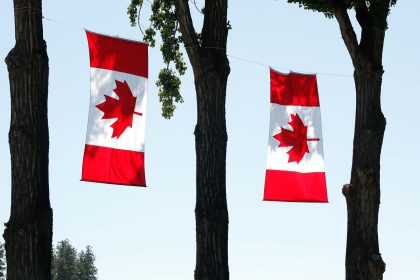Quebec, a province with a unique history and heritage, has long been a special case in immigration to Canada. With a set of selection criteria, Quebec has its own distinctive programs.
Also, with the ability to choose skilled workers from abroad, this province has more power than other provinces in terms of the ability to influence its immigration.
If you have any questions about immigration to Canada, our colleagues at Helica Canada Immigration Company are ready to provide you with expert advice. Just call the number below. (by touching the number, the call will be made automatically)
Phone 02122418877
A unique creation
In 1995, the francophone province voted to become an independent province within Canada. which won 0.58% of the vote as the deciding force to remain in the territory of Canada.
It should be noted that the factors that shaped the call for the 1995 referendum were the same factors that gave Quebec the power it has over immigration today – forces that are deeply rooted in the province’s history and culture.
Quebec has a distinct historical and cultural background, even older than English in Canada. In 1608, (more than 250 years before confederation the Dominion of Canada), French diplomat and explorer Samuel de Champlain founded Quebec City with 28 of his men – and claimed the province as part of New France (a territory within France which covers most of the east (including the coasts of Canada and the United States).
He did this in an abandoned Iroquois settlement called Stadacona. Using their native word, the Iroquois guide him to the village of “Kanata” – which is where the name Canada comes from.
De Champlain – widely regarded as the father of New France – remained the administrator of New France (aka Quebec) until his death in 1635. In 1763, after the end of the Seven Years’ War, France signed the Treaty of Paris and ceded parts of French territory.
One of these territories was New France (including Quebec), which was ceded to the British. This issue is one of the reasons for the preservation of French culture in this province.
Quebec was already historically, culturally, and demographically different from the rest of Canada (which the British had a profound influence in colonizing). Quebec twice served as the capital of the British province of Canada (now divided into Quebec and Ontario), which was later incorporated into the larger territory of Canada in 1867.
However, after the integration of Quebec into the territory of Canada, the province never had an Anglophone culture like the rest of Canada. To this day the Quebecois have retained much of the language, customs, legal framework, and religion brought by the French.
The 1960s were a time of rapid and drastic change in Quebec, widely known as the “Quiet Revolution”. In 1961 Quebec sought to establish democratic relations with France, Great Britain and the United States – however, the federal government intervened – claiming that there could only be “a dialogue” with foreign countries.
This event sparked debate about the place of Quebec and French Canadians in Confederation. In 1968, these cultural forces, along with a change in Canadian immigration policy (moving from a country-of-origin classification system to a points-based system based on applicants’ work skills, language ability, family connections, and education) led to Quebec’s first Department of Immigration was created.
Read more: Provincial Immigration (pnp) to Canada
1971-1991: Negotiations for immigration
Under the 1867 constitution, immigration has a special place among the powers and is controlled at both the federal and provincial levels – however, today no province has as much influence over its own immigration as Quebec.
The creation of the Quebec Ministry of Immigration reflected Quebec’s claim that controlling immigration to the province was a key issue—not just for economic reasons, but because of the preservation of the French language and French-speaking culture as a central concern. As a result, Quebec recruited Frenchmen from all over the world during this period.
Between 1971 and 1991, Quebec continually negotiated its provincial authority over immigration. It led to four constitutions that shaped the powers of the province:
- The Long-Cloutier Agreement of 1971 was Canada’s first immigration law to Quebec. The agreement allowed Quebec to have representatives in Canadian embassies and immigration counseling abroad, largely heralding administrative changes to Quebec’s role in immigration to Canada.
- The Andras-Bienvenue Agreement of 1975 assisted Quebec in the immigrant selection process, allowing the province to provide interviews and recommendations to visa officers. It was a major milestone for the province, as the rules in the law meant the federal government would now have to consider Quebec’s opinion on any new immigration requests to the region.
- The Cullen-Couture Agreement of 1978 extended equal rights to temporary immigration, specified its selection criteria, and gave the province greater influence over immigration at its borders.
- The Gagnon-Tremblay-McDougall Agreement of 1991 – also known as the Quebec-Canada Agreement – was the biggest victory for Quebec immigration in the province’s history. Based on this law, the province obtained the process of full selection of immigrants (especially economic immigrants) to its borders. And also the integration and franchising of these people in the province.
Read more: Types of Canadian visas
From the past to the future
A quick historical summary of Quebec’s immigration policy shows that one of the province’s main concerns is the preservation and promotion of French culture and the French language.
In 1977, Bill 101 (French Language Charter) was enacted. This bill was a political turning point in Quebec’s landscape. This law made French the everyday language of Quebec. Most immigrant children (for example) now attend French-language schools higher than English-language schools.
In June 2022, the charter was updated with Bill 96 – more emphasis on the French language in Quebec. Today, French is the exclusive language of communication between the Quebec government and its residents. In addition, communication between businesses and their clients and customers, product labeling and contracts with the Quebec civil administration must be exclusively in French.
Why is this important to you?
Understanding why Quebec’s immigration policy differs from the rest of Canada is a key step for anyone wishing to immigrate to the province. With Quebec’s emphasis on French and Francophone culture, immigrants from similar backgrounds may find more success in trying to immigrate, settle, and live in the province than other immigrants in Canada—especially if they can meet the economic criteria set by the This province and the government of Quebec also meet.
RCO NEWS















